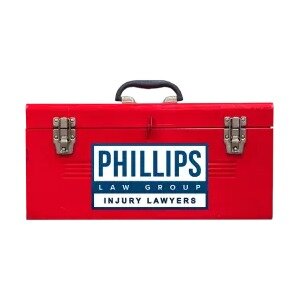Best State, Local, and Municipal Law Lawyers in Phoenix
Share your needs with us, get contacted by law firms.
Free. Takes 2 min.
List of the best lawyers in Phoenix, United States
About State, Local, and Municipal Law in Phoenix, United States
State, local, and municipal law in Phoenix, United States, encompasses the legal frameworks and regulations that govern the activities of state, county, and city governments within the region. This area of law covers a wide array of issues including local governance structures, zoning laws, public policy, and municipal services. These laws ensure that local governments operate within the legal parameters set by both state and federal law, allowing for efficient and fair management of resources and public services.
Why You May Need a Lawyer
There are several common situations where individuals and entities may require legal assistance in the arena of state, local, and municipal law in Phoenix. These include:
- Disputes with local government regulations or decisions.
- Issues related to zoning, land use, and property development.
- Challenges or compliance regarding local taxes and fees.
- Navigating public health and safety regulations.
- Contract negotiations and disputes with municipal bodies.
- Public records requests or open meeting law issues.
Engaging with an experienced lawyer can help you understand these complex legal frameworks and protect your rights effectively.
Local Laws Overview
The local laws of Phoenix address numerous aspects of daily life and business operations within the city. Key aspects include:
- Zoning Regulations: Zoning laws in Phoenix regulate land use by dividing the city into zones for different types of development and activities. These laws ensure orderly growth and development in the city.
- Building and Safety Codes: Phoenix enforces strict building codes to ensure the safety and structural integrity of buildings, which cover plumbing, electrical work, and fire safety.
- Public Health and Welfare: Local laws govern issues ranging from sanitation to public health and safety to maintain a high standard of living.
- Taxation: Phoenix imposes specific sales, property, and other local taxes that residents and businesses must comply with.
- Environmental Regulations: These include laws designed to protect the local environment, such as waste management and water usage policies.
Frequently Asked Questions
What is the role of the city council in Phoenix?
The city council in Phoenix is responsible for passing ordinances, approving the city budget, and overseeing local government operations. They represent the interests of their constituents and address community issues.
How can I dispute a zoning decision in Phoenix?
You can contest a zoning decision by filing an appeal with the Board of Adjustment in Phoenix. Engaging with a lawyer specializing in zoning laws can help guide you through this process.
What are the regulations around short-term rentals in Phoenix?
Phoenix has specific regulations governing short-term rentals, including registration requirements and compliance with noise, safety, and other community standards.
How can I access public records in Phoenix?
You can request public records from the relevant municipal department under the Arizona Public Records Law. Processing fees may apply, and not all records are subject to disclosure.
What steps do I need to take to start a business in Phoenix?
To start a business in Phoenix, you must register your business name, obtain necessary permits and licenses, and comply with local zoning and safety regulations.
When is a special use permit required?
A special use permit may be required for activities not permitted by normal zoning regulations, such as certain types of commercial developments. It's necessary to apply through the city's planning and zoning department.
What are the penalties for violating local health codes in Phoenix?
Penalties for violating local health codes can range from fines to the suspension of business licenses, depending on the severity of the violation.
How does Phoenix handle public nuisances?
Phoenix addresses public nuisances through ordinances aimed at maintaining public peace and order. Complaints can lead to investigations and enforcement actions by city officials.
What is the process for changing land use designations?
Changing land use designations typically involves submitting an application, holding a public meeting, and obtaining approval from the city council after a review by the planning department.
Can local ordinances in Phoenix override state law?
Local ordinances cannot override state laws. They must operate within the parameters established by state legislation and the Arizona Constitution.
Additional Resources
For further assistance, consider reaching out to the following resources:
- Phoenix City Government: Visit the official city website for information on local ordinances and procedures.
- Arizona Department of Revenue: For information on local and state taxes.
- Maricopa County Recorder’s Office: For public records access and information.
- State Bar of Arizona: Provides a directory of attorneys specializing in state, local, and municipal law.
- Local Law Libraries: Facilities such as the Ross-Blakley Law Library at ASU offer resources for legal research.
Next Steps
If you need legal assistance in the area of state, local, and municipal law in Phoenix, consider the following steps:
- Identify the specific legal issue you are facing.
- Gather all relevant documentation and information regarding your case.
- Consult with a qualified attorney specializing in the relevant area of law.
- Review the advice given and consider alternative dispute resolution if applicable.
Taking these steps can help ensure you find the appropriate legal guidance to navigate your specific situation effectively.
Lawzana helps you find the best lawyers and law firms in Phoenix through a curated and pre-screened list of qualified legal professionals. Our platform offers rankings and detailed profiles of attorneys and law firms, allowing you to compare based on practice areas, including State, Local, and Municipal Law, experience, and client feedback.
Each profile includes a description of the firm's areas of practice, client reviews, team members and partners, year of establishment, spoken languages, office locations, contact information, social media presence, and any published articles or resources. Most firms on our platform speak English and are experienced in both local and international legal matters.
Get a quote from top-rated law firms in Phoenix, United States — quickly, securely, and without unnecessary hassle.
Disclaimer:
The information provided on this page is for general informational purposes only and does not constitute legal advice. While we strive to ensure the accuracy and relevance of the content, legal information may change over time, and interpretations of the law can vary. You should always consult with a qualified legal professional for advice specific to your situation.
We disclaim all liability for actions taken or not taken based on the content of this page. If you believe any information is incorrect or outdated, please contact us, and we will review and update it where appropriate.











